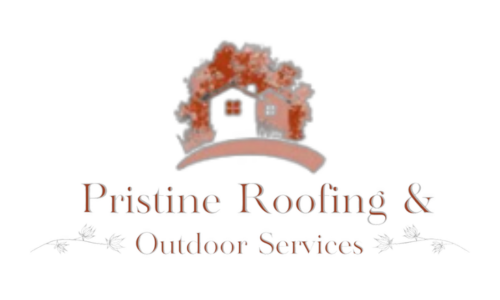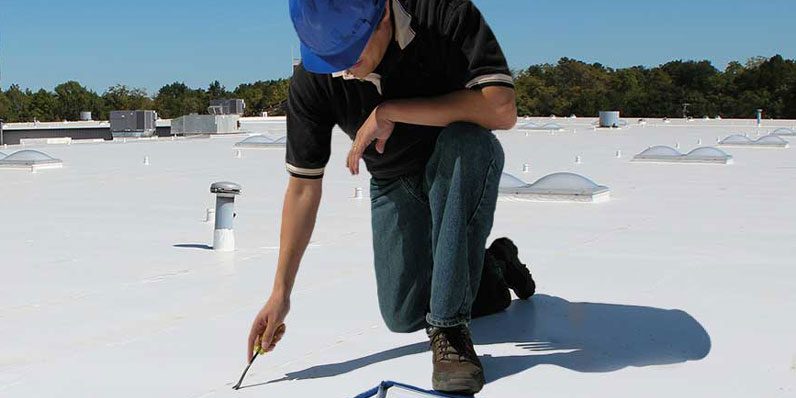Commercial roof inspections are crucial for maintaining the integrity and longevity of a commercial property’s roofing system. Regular inspections not only ensure the safety of building occupants but also prevent costly repairs and extend the life of your roof. This comprehensive guide delves into the why, when, and how of commercial roof inspections, offering property owners valuable insights into keeping their investments secure and functional.
The Importance of Commercial Roof Inspections
Preventing Costly Repairs
Routine commercial roof inspections can identify minor issues before they escalate into significant problems. Addressing these concerns early on can save property owners a considerable amount of money in repair or replacement costs.
Extending Roof Life
Understanding the condition of your roofing system through regular commercial roof inspections allows for timely maintenance, which is essential in maximizing the roof’s lifespan. A well-maintained roof can serve its purpose far beyond the expected years when given the proper care.
Ensuring Safety
The safety of building occupants is paramount. Regular commercial roof inspections help identify potential hazards, such as weak structural points or water damage, ensuring a safe environment for everyone within the property.
Understanding Commercial Roofing Systems
Common Types of Commercial Roofs
Commercial roofs come in various types, including flat, metal, and membrane roofing. Each has its unique characteristics and maintenance needs, which are important to consider during commercial roof inspections.
Potential Issues and Vulnerabilities
Different roofing systems face various challenges, such as pooling water on flat roofs or corrosion in metal roofs. Recognizing these vulnerabilities during commercial roof inspections is crucial for effective maintenance and repair strategies.
Maintenance Requirements
Regular maintenance, informed by commercial roof inspections, is vital for all roofing types. Whether it involves cleaning drains, removing debris, or applying protective coatings, maintenance requirements can significantly impact the roof’s condition and longevity.
When to Schedule Commercial Roof Inspections
Recommended Frequency
Experts recommend scheduling commercial roof inspections at least twice a year, typically in the spring and fall, to address any damage from summer heat or winter conditions.
After Extreme Weather Events
Severe weather can cause immediate and noticeable damage to roofing systems. After such events, conducting commercial roof inspections is essential to assess and address any impact, ensuring the roof’s integrity is maintained.
Before Warranty Expiration
Before a roof’s warranty expires, a thorough inspection can identify any repair or maintenance needs to be covered under the warranty, saving property owners from out-of-pocket expenses for issues that could have been addressed earlier.
The Commercial Roof Inspection Process
What Inspectors Look For
During commercial roof inspections, inspectors assess several key elements, including the condition of roofing materials, signs of water damage, the integrity of seams and flashings, and the functionality of drainage systems.
Tools and Technology Used
Modern commercial roof inspections often utilize advanced tools and technology, such as drones for aerial photography and infrared cameras to detect moisture issues not visible to the naked eye. These tools enhance the accuracy and comprehensiveness of inspections.
Understanding the Inspection Report
The outcome of commercial roof inspections is a detailed report that outlines the roof’s condition, identifies any issues, and recommends necessary repairs or maintenance. Property owners should review this report carefully to understand the immediate and long-term needs of their roofing system.
DIY Inspection Tips for Property Owners
Basic Safety Precautions
While professional commercial roof inspections are recommended for a thorough assessment, property owners can perform basic inspections to monitor their roofs’ condition. It’s vital to prioritize safety by using proper safety gear and never accessing the roof in hazardous weather conditions.
Identifying Signs of Wear and Damage
During preliminary inspections, look for visible signs of wear and damage, such as cracked or missing materials, pooling water, or blocked drainage. Early detection of these signs during your inspections can prevent minor issues from escalating.
When to Call the Professionals
If you notice any signs of significant damage or wear, it’s crucial to call in professionals for a comprehensive commercial roof inspection. Experts can provide a detailed assessment and recommend the best course of action to address any issues.
Professional Inspection vs. DIY: Making the Right Choice
Benefits of Professional Inspections
Professional commercial roof inspections offer the advantage of experienced eyes trained to spot potential problems that untrained individuals might miss. Additionally, professionals have access to advanced tools and technologies for a more detailed assessment.
Limitations of DIY Inspections
While DIY inspections can be helpful for regular monitoring, they have limitations, especially in identifying hidden or complex issues. The expertise and equipment professionals bring to commercial roof inspections are indispensable for a thorough evaluation.
Cost Considerations
Investing in professional commercial roof inspections can save money in the long run by preventing expensive repairs or replacements. Regular professional inspections ensure your roof remains in optimal condition, extending its lifespan and protecting your investment.
Common Problems Uncovered During Inspections
Leaks and Moisture Penetration
One of the most common issues identified during commercial roof inspections is leaks and moisture penetration. These can lead to mold, rot, and structural damage if not addressed promptly.
Structural Issues
Inspectors also look for structural problems, such as sagging or undue stress points, which could compromise the roof’s integrity and the safety of the building’s occupants.
Drainage Problems
Proper drainage is crucial for the health of a roof. Commercial roof inspections often uncover issues like clogged drains or inadequate slope, which can lead to water accumulation and damage.
Addressing Issues Found During Inspections
Immediate Actions and Repairs
Following commercial roof inspections, it’s important to act swiftly to address any identified issues. Immediate repairs can prevent further damage and protect the building’s integrity.
Long-Term Maintenance Strategies
Based on the findings of commercial roof inspections, develop a long-term maintenance strategy to address ongoing and potential issues. Regular maintenance can significantly extend the life of your roof.
Budgeting for Roof Maintenance and Repairs
Effective budgeting for roof maintenance and repairs is crucial. Set aside funds based on the recommendations from commercial roof inspections to ensure your roof remains in good condition, preventing unexpected financial strain.
The Role of Inspections in Roof Replacement Planning
Deciding When to Replace
Determining the right time to replace a commercial roof is a critical decision for property owners. Regular commercial roof inspections play a pivotal role in this process, providing the data needed to make informed decisions. Inspectors can identify when repairs are no longer cost-effective compared to replacement.
Planning and Budgeting for Replacement
Commercial roof inspections offer valuable insights that aid in the planning and budgeting phase of roof replacement. These inspections can highlight the current state of the roof, allowing property owners to anticipate the need for replacement and allocate resources accordingly.
Choosing the Right Roofing System
Armed with information from comprehensive commercial roof inspections, property owners can make educated decisions about the most suitable roofing system for their needs. Considerations include durability, energy efficiency, and the building’s architectural style.
Navigating Insurance and Inspections
How Inspections Affect Insurance Claims
Frequent commercial roof inspections can have a significant impact on insurance claims. A well-documented history of regular maintenance and inspections can streamline the claims process and potentially result in more favorable terms, as it demonstrates due diligence in maintaining the property.
Documentation and Record-Keeping
Maintaining detailed records of all commercial roof inspections and subsequent repairs is essential. This documentation can be invaluable in the event of an insurance claim, providing a clear history of the roof’s condition and maintenance.
Working with Insurance Companies
Understanding how to effectively communicate and work with insurance companies is crucial for property owners. Regular commercial roof inspections and proper documentation can facilitate discussions, especially when negotiating claims related to roof damage.
Future Trends in Commercial Roof Inspections
Technological Advancements
The future of commercial roof inspections is being shaped by technological advancements. Drones, thermal imaging, and other innovative tools are making inspections more thorough and less intrusive, allowing for precise assessments without the need for direct access in some cases.
Sustainable Roofing Practices
Sustainability is becoming increasingly important in the roofing industry. Future commercial roof inspections will likely focus more on evaluating the environmental impact of roofing materials and methods, guiding property owners toward more sustainable practices.
Regulations and Standards Update
As the industry evolves, so too do the regulations and standards governing commercial roofing. Staying informed about these changes is crucial, as they will influence the criteria for inspections, maintenance, and replacements.
FAQs on Commercial Roof Inspections
1. How often should I schedule commercial roof inspections?
Ideally, you should have your commercial roof inspected by professionals at least twice a year, typically in the spring and fall. Additionally, inspections are recommended after extreme weather events or whenever you suspect there may be damage.
2. What is the difference between a commercial roof inspection and a residential roof inspection?
Commercial roof inspections often deal with different types of roofing materials and construction styles (e.g., flat roofs vs. pitched roofs) and may require specialized knowledge and equipment. The scale and complexity of commercial roofs also generally surpass those of residential roofs.
3. Can I conduct a roof inspection myself?
Property owners can perform basic visual inspections to check for visible signs of damage or wear. However, for a comprehensive assessment, it’s advisable to hire professionals who have the expertise and equipment to conduct thorough commercial roof inspections.
4. What does a commercial roof inspection entail?
A commercial roof inspection typically includes examining the roof’s surface, drainage systems, flashing, and penetrations (such as vents and skylights) for signs of wear or damage. Inspectors may also use tools like drones or infrared cameras to assess the roof’s condition.
5. What are the signs that my roof needs immediate attention?
Signs include visible damage such as leaks, cracks, or missing pieces; significant pooling of water; and blocked drainage systems. If you notice any of these issues, it’s crucial to contact a professional for a detailed inspection as soon as possible.
6. How long does a commercial roof inspection take?
The duration of an inspection can vary depending on the size and complexity of the roof. On average, a thorough inspection might take anywhere from 1 to 3 hours.
7. Will a roof inspection disrupt my business operations?
Professional inspectors aim to minimize disruption during their assessment. Most commercial roof inspections are non-invasive and can be performed without affecting day-to-day business operations.
8. What should I do if the inspection reveals problems with my roof?
If issues are identified during the inspection, the inspector will recommend the next steps, which may include repairs, maintenance, or in some cases, replacement. It’s crucial to follow these recommendations promptly to avoid further damage.
9. How much does a commercial roof inspection cost?
The cost can vary widely depending on the roof’s size, location, and the complexity of the inspection. Some companies offer free inspections, while others may charge a fee that could range from a few hundred to over a thousand dollars.
10. Can commercial roof inspections save me money?
Yes, regular inspections can identify minor issues before they become major problems, potentially saving thousands of dollars in repair or replacement costs. Additionally, maintaining your roof in good condition can extend its lifespan, offering long-term savings.
Conclusion
Commercial roof inspections are a cornerstone of proactive property management. They safeguard the investment in your property, ensure the safety of building occupants, and contribute to the longevity and efficiency of your roofing system. By embracing regular inspections, staying abreast of technological and regulatory changes, and planning strategically for maintenance and replacement, property owners can significantly enhance the performance and lifespan of their commercial roofs.
Call to Action
Don’t wait for leaks to remind you of the importance of your roof’s condition. Schedule a commercial roof inspection today to gain peace of mind, protect your investment, and plan for the future with confidence. Remember, the key to a long-lasting commercial roof is regular maintenance and timely interventions based on professional inspections.

